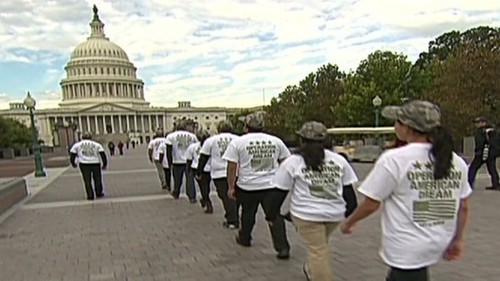
Let me tell you something. Like those doing sit-ins in the civil rights era, and what we were doing at CAL Berkeley and the other protests I’ve participated in – There was a protocol. We were trained on it, and knew what to expect. For the most part, by and large in my experience the cops were cognizant of those protocols too, and adhered to them.
If you opted to be arrested, you were clearly shown the places where you should stand or sit. The areas outside the “arrest zone” nobody was touched. You could choose to link arms and the police had to extricate you one by one from the line and take you into custody. You could choose to go limp, or walk. No officers would beat you over the head, punch or shove you, or cut off your circulation with the cuffs or restraints. The idea was to simply arrest you, get you off the protest line and into jail.
Because it was understood that the protesters were getting arrested on purpose, going to jail to make a point, and to show how far you were willing to go for your cause. The police were there to do your job, as you were there to do yours. There was mutual consent to and adherence to the protocols. I’m not saying they were gentle, or always respectful – in individual cases, with individual officers, some weren’t adverse to being a bit more rough with their methods of taking protesters into custody.
But this his casual, pointed, out of control and targeted aggression at protesters simply just shattered my soul and boggled my mind. It’s bad enough to just see it outright, but to have experiences under my belt that were far opposite to what has been going on in Ferguson, Shaw and all around St. Louis now has fucked up my brain and bruised my heart.
– Click through to read more –
Source: awakeblackwoman.wordpress.com
Like this:
Like Loading...











